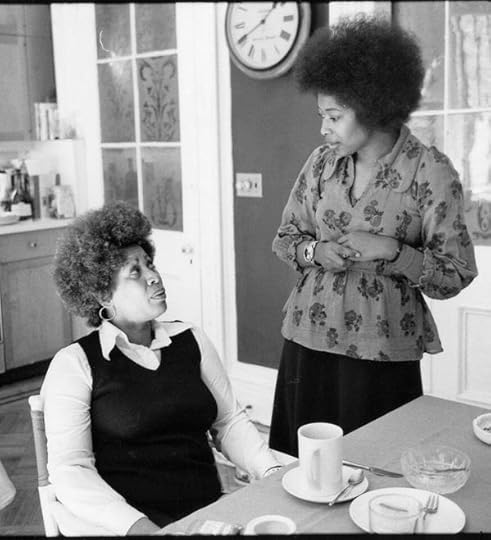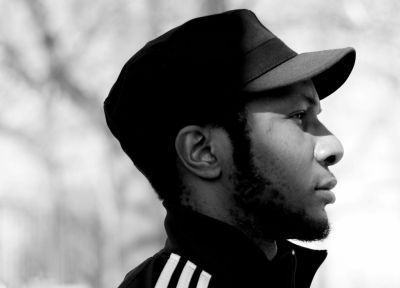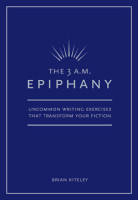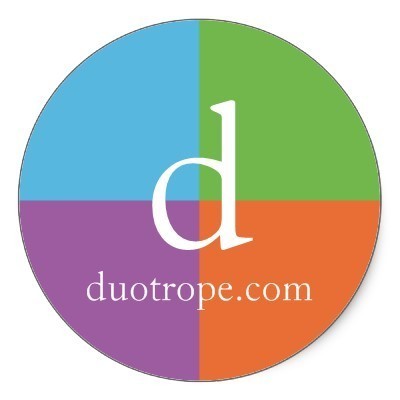Jay Sennett's Blog, page 12
March 24, 2015
Toni Morrison & Alice Walker – There are Only Black People

“I never asked Tolstoy to write for me, a little colored girl in Lorain, Ohio. I never asked [James] Joyce not to mention Catholicism or the world of Dublin. Never. And I don’t know why I should be asked to explain your life to you. We have splendid writers to do that, but I am not one of them. It is that business of being universal, a word hopelessly stripped of meaning for me. Faulkner wrote what I suppose could be called regional literature and had it published all over the world. That’s what I wish to do. If I tried to write a universal novel, it would be water. Behind this question is the suggestion that to write for black people is somehow to diminish the writing. From my perspective there are only black people. When I say ‘people,’ that’s what I mean.” – Toni Morrison
If you'd like to receive a free chapter from my book Self-Organizing Men, sign up here.
March 23, 2015
A FtM in a Pink-Ruffled Shirt Drives Into a Truck Stop
Photo by Jeff Turner (Santa Clarita, CA)
I’m delighted to share with you some exciting news.
Late last year, I began the process of submitting several non-fiction pieces to top- and middle-tiered journals. The end result to date has been more rejections than acceptances and a whole lot of personal growth!
But, even with the near-unlikelihood of acceptance for all writers (something like 1%), I’ve had my first piece accepted.
A Pink-Ruffled Shirt Makes the Man has found a home at The Nervous Breakdown.
I’m thrilled, delighted and proud. In fact I can only feel more proud if you would be willing to take a few moments to read it. It’s flash non-fiction; less than 750 words to be exact.
Thank you for your support. Keep being creative.
Jay
The Duty of an Artist
The incomparable Nina Simone on the duty of an artist. “How can you be an artist and not reflect the times?” Do you agree or disagree?
If you'd like to receive a free chapter from my book Self-Organizing Men, sign up here.
January 26, 2015
Narcissism, Humility and Juiciness

Author Teju Cole
I’ve often thought how I might have easily become a narcissist. I’m not being hyperbolic, either. Without trying I can make everything be about me, blame others for my faults and obsessively drone about real or imagined hurts.
It makes complete sense, then, that I should want to become a writer; not just any writer, but a writer who publishes in nationally renowned journals. The same journals with two percent or less acceptance rates. A narcissist’s wet dream, you say.
Yes, of course. I can make everything about me, so a failure to achieve a “yes, we’d love to publish this” ought to cause me to rail against all the moronic editors, blah, blah, blah. In a reaction that I can only describe as astonishing, when I received another rejection on Saturday, I found myself more tender and open-hearted. “I’m going to double-down,” I thought to myself. Go in deeper, expose myself even more, attempt a hundred rejections of the same piece. I mock myself, yes. But of all the possibilities I imagined I might experience in the face of ongoing rejection, gratitude and humility never cracked the top one hundred.
Gratitude is the less surprising of the two. The likelihood that I would be born in this particular time and place; grow up in circumstances that allowed me to change genders as an adult; marry Ms. H; work with a boss who helped me create a part-time schedule at work (on the weekends, no less, too); and then have the compulsion to write; well, I think that chance is like 1 in a trillion.
I’m also grateful to be able to participate in an honorable profession. Art creators get scoffed at quite a lot in the U.S. (“yabut canya make money??”) but the profession is one where the price of admission is actually doing the work. And while I might find a particular author’s work not to my taste, they have put in the time.
Finally, I’m grateful to pursue my honoroable profession in the English language, a delight of verbs and borrowed terms, an action-oriented mish-mash of latin and anglo-saxon. All languages are fantastic and, in translation, can take my breath away (I recently finished a Street of Thieves by Mathias Enard, in which I now know conclusively that Arabic is the language of love. Those poets writing in Arabic make French seem like the ingredients on a box of cereal.)
Oh, the humility in this honorable profession. Averageness, or being just like everyone else, spells ruin for the narcissist. Don’t put yourself out there in case you fail. Blame others when you do. Drive away foes, then friends. Sit alone, morning after night, until only the paramedics will find you, dead.
Such might have been my fate. Astonishingly not. On Saturday after reading yet another rejection email, I thought myself in a great river of words, riding in a flow of creation through words that extends back thousands of years. Everyone in this river works hard and suffers and many are much better than I. To find some modest success, whenever that might be, among all this talent makes my smile and keeps my heart juicy.
I’m looking forward to where the juiciness leads. My writing can only get better.
January 23, 2015
3 A.M. Epiphany – A Great Writing Tool
Three A.M. Epiphany by Brian Kiteley provides me with numerous opportunities to work on my writing skills. He groups exercises around topics like “Point of View,” “Images,” “Characters and Ways of Seeing” and “Women and Men.” The author provides exercises that have forced me to stretch. Boy does that make a difference in my writing!
by Brian Kiteley provides me with numerous opportunities to work on my writing skills. He groups exercises around topics like “Point of View,” “Images,” “Characters and Ways of Seeing” and “Women and Men.” The author provides exercises that have forced me to stretch. Boy does that make a difference in my writing!
The exercises he provides don’t always show up in my current work. At a future date I believe they will surface. Writing, besides reading, is about skill building, I think.
What kinds of skills? Check out a few of his exercises to find out. You can pick up a copy at your local library. If you subscribe to Oyster Books (a monthly subscription service like Netflix, but for books), it is available there.
Here are two exercises:
The Reluctant I. Write a first-person story in which you use the first-person pronoun (I or me or my) only two times – but keep the I somehow important to the narrative you’re constructing. ^00 words
Beyond Words. Create a brief fragment of an epiphany, a moment beyond words, beyond explaining, in which a character sees the necessity of change. 300 words.
January 20, 2015
Are You a Book Marker?
After delaying for a very long time, I began reading Lydia Davis’ translation of Proust’s Swann’s Way (In Search of Lost Time) and with my trusty pencil in hand, started underlining passages.
Then I realized some people never mark up their books; that the reading world may be divided into those who do and those who do not.
I do. For several reasons:
to enhance concentration;
to provide a quick reference point in the future;
to hear the sound of the pencil on the paper;
to make the book more mine.
How about you? Do you write in your books? If so, why?
January 19, 2015
InTouch Magazine is OutofTouch, and So Are We
InTouch magazine found Bruce Jenner’s gender presentation terrifying enough they had to photoshop lipstick and a scarf on his face. (I use the pronoun he because I have not read anything directly from him asking otherwise). People excoriated InTouch and defended Jenner’s right to come out when and how he wants to.
Fascinating to see how everyone, even Jenner’s supporters, assume Jenner will end up in the box marked “woman.” At work here is the belief that changing genders is a journey with the destination being a person’s preferred gender, the final stop.
What if Jenner finds ecstatic happiness right now exactly as he is? What we will do then? Media pundits and more than a few people outside trans communities do not like people who are bigendered or nongendered or multigendered.
Just pick one! says InTouch. Oh he will, say his defenders, in his own time.
What will we do with ourselves if Bruce has already chosen?
January 16, 2015
Duotrope for Better Writing Management
 Duotrope is a tool ($50.00/year) I use to track journal submissions. While I found the interface difficult to understand as a beginning user, I really like this like this software. Besides acting as a submission tracker and archive for all submissions, Duotrope shines when it comes to the statistics they use. How long will I expect to wait before I hear a response from x journal? There’s a statistic for that. What percentages of submissions are accepted? There’s a stat for that.
Duotrope is a tool ($50.00/year) I use to track journal submissions. While I found the interface difficult to understand as a beginning user, I really like this like this software. Besides acting as a submission tracker and archive for all submissions, Duotrope shines when it comes to the statistics they use. How long will I expect to wait before I hear a response from x journal? There’s a statistic for that. What percentages of submissions are accepted? There’s a stat for that.
Duotrope also tracks which users submitted to other journals. For example, I submitted a piece to AGNI. Duotrope tells me that other users submitted work to The Normal School. I can then click on the Normal School link and read more about this really cool journal. I can also track submission deadlines; call for entry deadlines and read about more than 4900 magazines and journals referenced in their databases, a small number of which hail from Canada and the United Kingdom.
They also have a cool series of interviews with editors. That feature has helped me to quickly determine if my more experimental memoir style will at least be of interest to them. I can then check out the journal from my local library. (Journals are eligible for interlibrary loan. Ask your local librarian how to do that for you.) I read an issue or two, then decide two things: Whether or not the essay I have in mind might fit with that journal’s particular editorial vision and if I want to become a subscriber.
I’m not very good with keeping track of things in spreadsheets. And paying money for something makes me more inclined to track/submit/whatever the software expects me to do. Unless I have my black ninja habit master with me, my lovely Ms. H., I struggle. So Duotrope fulfills an important professional goal of submission tracking and submission sanity (I could see myself submitting the same piece to the same journal, the one that will reject my work twice!).
Duotrope has a seven-day trial period. For me the 50/year is worth it.
One of my writing mentors said tracking submissions is really important. Tracking successes, and almost as important, tracking the soft nos, when an editor writes a personalized rejection note, and tracking which journals have received which draft of an essay or story, becomes an act that suggests I’m a pro. While I can’t be responsible for the outcome of my efforts, and trust me, the success rate stinks – less than one percent for unknown writers (i.e. those who don’t get commissioned to write a piece), I am responsible for showing up.
We all know we will die. From the second our particular sperm and egg say hello, how do you do, we’re dying. Writing isn’t much different. From the moment I send out an essay or story, there is a greater than 99% chance I will be rejected.
But this is the work of writing. And while writing goals (daily pages/daily word counts/submissions per month) are a foundation of a writing career, reading journals, submitting, reading the works of authors we admire, and more importantly, reading works we find really, really hard (in English, Joyce or Morrison; in translation, Tolstoy or de Beavoir) are equally important. Duotrope might be an important part of your process.
Good luck!
January 15, 2015
Going Pro (Or I’m a Real Writer)
 2014 brought significant changes to my writing and my self-image as a writer. In mid-summer I enrolled in a Creative Nonfiction class called Experimental Forms. Led by Barrett Swanson, an MFA graduate from University of Wisconsin at Madison, and a 2014 Pushcart Winner, I found my voice and an extraordinarily supportive teacher.
2014 brought significant changes to my writing and my self-image as a writer. In mid-summer I enrolled in a Creative Nonfiction class called Experimental Forms. Led by Barrett Swanson, an MFA graduate from University of Wisconsin at Madison, and a 2014 Pushcart Winner, I found my voice and an extraordinarily supportive teacher.
The course ran for six weeks. By some miracle wherein I lived with a piece for about five years, I wrote a 3000+word memoir essay entitled Ballistic Trauma, A Self-Report. Barrett’s feedback was a three page single spaced word document. He concluded his feedback by encouraging me to submit the piece to several literary journals. Who me? I thought.
I feel like I got my ticket punched! So to honor the both of us I submitted the piece to several journals late last year. While one has already declined to publish the piece, I await a response from four other journals. If all decline, I will focus on rewriting the piece over the summer and submit to a fresh round of journals in the fall.
Submitting any work to a journal, especially a piece I’ve worked on for quite a few months, makes me feel like a professional writer. Yes, I’ve published pieces on my blog. But the process of submitting to journals makes me feel like a real writer. Other people think so, too, apparently. Several coworkers have asked if I am using my nonwork time to write using a particular voice, with a certain tone. “Oh, yes! I’ve already submitted two pieces to several journals.” To a one surprised they are and mutter a few ohs and okays and move along. I guess so many of us spend our lives writing or thinking about writing or getting ready to think about possibly writing, to submit work is an outlier.
What makes you feel like a real writer?
January 14, 2015
The Right to Cause Offense
 As both a publisher and author, various opinion pieces regarding the massacre at Charlie Hebdo and the right to cause offense continue to rivet me. As a person steeped and reared in western democracy, I believe firmly in the right to cause offense as well as the right to disagree firmly with any position I deem offensive. For the record, as long as the content was created by adults for adults, I do not support censorship, even when the language or image denigrates me, as a transsexual, for example.
As both a publisher and author, various opinion pieces regarding the massacre at Charlie Hebdo and the right to cause offense continue to rivet me. As a person steeped and reared in western democracy, I believe firmly in the right to cause offense as well as the right to disagree firmly with any position I deem offensive. For the record, as long as the content was created by adults for adults, I do not support censorship, even when the language or image denigrates me, as a transsexual, for example.
Western publications have debated the value of publishing previous Charlie Hebdo covers. Some publications have republished them; others have not. Al-Jazeera, in leaked emails to the National Review, argued that the right to cause offense is infantile.
If anything, I believe the slaughter at Charlie Hebdo drew a line for me. In some way I cannot yet articulate, murdering people at a magazine dedicated to outrageous satire galvanized me more than the brutal extermination of adults and students at the Peshawar school massacre last month. My response speaks loudly to my class and nationality and rearing. Sussing out these crossroads will take me some time.
Here are a few of the articles I have found informative and enlightening, whether I agree with the opinions or not. I hope you find them illuminating.
“Put another way, defending the right of someone to say whatever they like does not oblige you to repeat their words.” The Guardian view on Charlie Hebdo: show solidarity, but in your own voice
““Defending freedom of expression in the face of oppression is one thing; insisting on the right to be obnoxious and offensive just because you can is infantile.” Al-Jazeera English editor Salah-Aldeen Khadr in a leaked email to the National Review
“To transform the shock of Charlie’s obscenities into veneration of its martyrdom is to turn the magazine into the kind of icon against which its irrepressible iconoclasm was directed.” Let’s not sacralize Charlie Hebdo
Marilyn LePen, leader of France’s National Front party, was not invited to a unity rally in Paris. Even the French have free speech limits. Questions looms for unity rally: Can the far right attend?
“We have a standard that is long held and that serves us well: that there is a line between gratuitous insult and satire. Most of these are gratuitous insult.” A close call on publication of Charlie Hebdo cartoons
Christiane Taubara, described in the NYTimes blog as a black woman who was once France’s Justice Minister and was once portrayed as a monkey by Charlie Hebdo, called a free press the “(f)irst line of defense and the last bastion of democracy , the free press is the enemy of obscurantism and violence ( Premier rempart et dernier bastion de la Démocratie, la presse libre est l’ennemie de l’obscurantisme et de la violence). Ms. Taubara’s twitter feed
Crass? Poor Taste? Perfect Satire? Steve Bell’s cartoon in response to the murders at Charlie Hebdo
“In fact, when we draw a line, we are often crossing one too….But perhaps when we tire of holding up our middle finger we can try to think about why the world is the way it is what it is about muslims in this time and place that makes them unable to laugh off a mere image.” The brilliant graphic artist and journalist Joe Sacco



